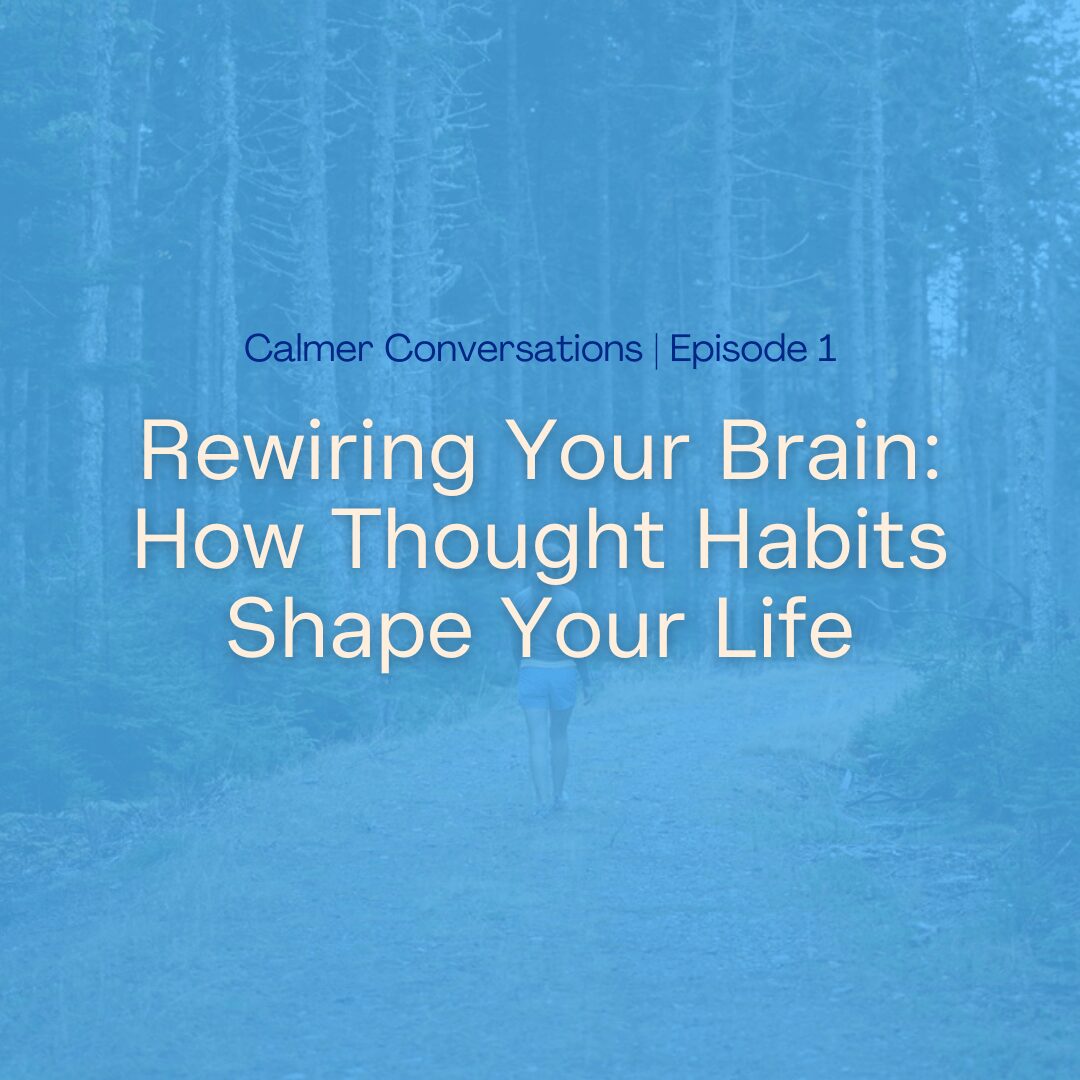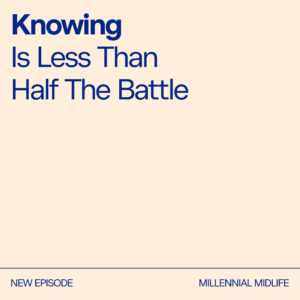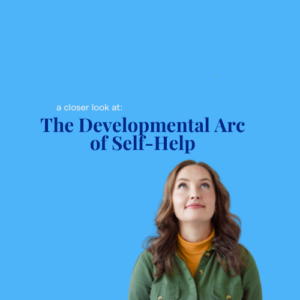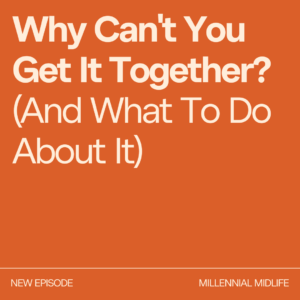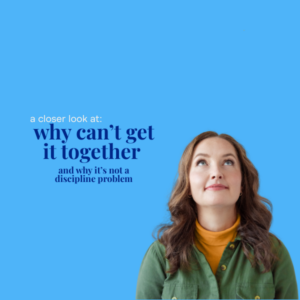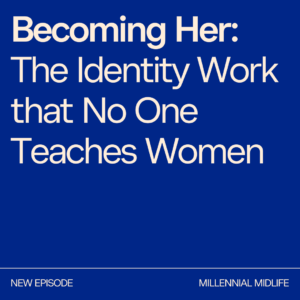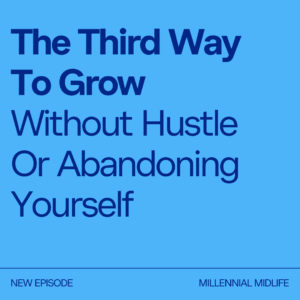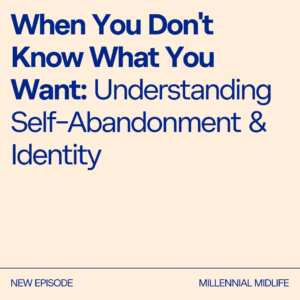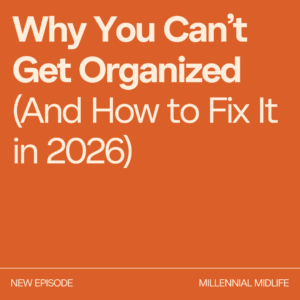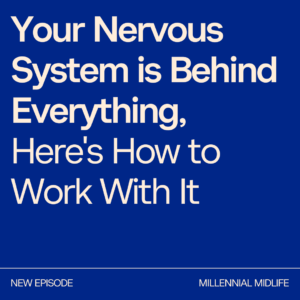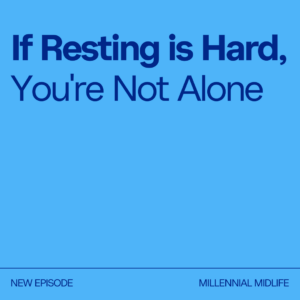Cecelia Baum Mandryk (00:01.538)
Welcome to Calmer Conversations, episode number one. I am Cecilia, your host. I’m thrilled that you are here, that you have decided to make changes in your life and that you’re interested in this kind of approach. To lay the foundation and groundwork for all of the episodes that will come after this, I really want to dive into one of the principles or maybe the foundational principle.
that I carry that’s behind all the work that I do that will be behind all of the podcast episodes that we have here and everything that shows up for social media that shows up in my programs, et cetera. And it’s this principle, this idea that changing your conditioning, that is your mental and nervous system habits is the fastest way to create and most effective way to create a lasting change in your life. So let’s say that one more time. So this principle is that changing your conditioning
that is changing your mental and nervous system habits is the fastest and most effective way to create lasting change in your life. That means that if you wanna change what you do day to day, if you wanna change how you feel day to day, if you wanna change how you’re showing up, you need to start to look to the habits of your brain and the habits of your nervous system. And this is really key because most people, and you probably fall into this category, I know I used to, when I’m trying to feel differently in my life,
change kind of what’s happening, I really look a lot to the actions. But the problem is when you only change actions, you’re having to use lot of willpower and self -discipline, and ultimately they don’t change how you feel or what you think about yourself. They don’t change your kind of self -concept. And so you need to start with your thoughts so you can change your self -concept, so you can change how you feel, so you can change what you do. And this might sound like a longer process, but I promise that it actually goes quicker once you know how to do
And once you figure out how to do this, you can change anything you want to change in your life. And the focus here really is creating that calmer conversation between your brain and your body, between your nervous system and your brain, so that you can thrive in life, so that you can really be doing what you want to be doing in life. Okay, so today the topic is your brain is a creature of habit. So this really relates to that. And as I said,
Cecelia Baum Mandryk (02:13.344)
Every topic that comes up on this podcast will relate to that principle in some way, but I figured why not start with one of the most obvious ones, which is your brain being a creature of habit. You might know this, right? You might have heard this before. You might know about it in theory. You might even be familiar with the motivational triad of your more primitive brain and how conserving energy is one of your brain’s key performance indicators, which means having habits, having ways, of default ways of being and acting in the world is key for conserving energy.
but you might not actually know why this matters to you and how you show up day to day. So today you’re going to walk around, walk away with some background information on this whole concept. You’re going to walk away with an understanding of why it matters to you if you want to feel differently and do different things in your life and how to start making changes today. So some, some things that you can take away that you can start implementing as soon as this episode ends and even while you’re in this episode. All right, let’s get started. So your brain is a creature of habit. Here’s some of the background.
habit, it’s a noun, let’s define it first, right? So it’s a settled or regular tendency or practice. And then I’m going to add in there that habits can be thoughts, beliefs, actions, ways of feeling in your body, so energetic feeling patterns within your body, and that habits happen without or with very little conscious input. So it’s what you think, you feel, you do with very little.
effort. And you can kind of think about habits in your life, the things that you repeat to yourself over and over again in your head, the ways that you seem to feel most days, the things that you do day to day, really without thinking about it, whether that’s brushing your teeth or picking up your phone to look at social media or telling yourself that you’re lazy. Right? These are all habits and they don’t all have to, those maybe seemed a little bit like bad habits or negative habits. They don’t all fall into that, right?
You could also be in the habit of feeling grateful each day or praying before a meal or something like that. Your habits are who you are in the world. They’re your trajectory. Your habits are who you are in the world. They’re your trajectory, right? So if you look at somebody’s habits, you can tell where they’re going. Your habits also largely, they’re kind of a symptom or they define your self -concept and how you see yourself, how you see the world around you.
Cecelia Baum Mandryk (04:35.064)
Dan Sullivan said, who you are in life is what you can do skillfully without thinking about it. And I think that that’s so powerful to think about what you do skillfully each day without thinking about it and how that creates the life that you have and how you feel in your life and where you’re going in life. And so this is kind of why this starts to become important. You can already maybe realize that, right? So if the habits of your brain control your self -concept and that controls kind of what you’re doing or your trajectory in the world,
suddenly they become very important, But what do I actually mean when I say your brain is a creature of habit? Well, I mean that your brain and nearly everything it does is a paved neural pathway. So it’s something that you’ve thought, felt, or done before. Right? So your brain and kind of what it thinks and what it does, you can think of it like water running down a mountain, and it has a preferred pathway. It has a channel that it’s gone down before,
that gets bigger and deeper and it kind of prefers that more and more and more over time. And so those are your neural pathways, right? And the more you do something, the easier it becomes to do it over and over and over again. If you think about if you’ve ever moved to a new place and you had to figure out where the store was, or you got a new job and you had to figure out how to drive there, how to get there, the first time you did it, you really had to think about it a lot. But the hundredth time you barely had to think about it at all, right? So
see what you’re accustomed to seeing. You think what you normally think. You interpret your actions and the actions of others how you have interpreted them or how somebody else in your life interpreted them before. So maybe how a parent did or a caregiver or a teacher or society or a church, how they interpreted something is now how you might interpret it. And this is because first you need to conserve energy, right? So your brain receives a truly mind -boggling amount of information
second. And it can’t process all of the sensory information it receives, but it does process a very small fraction of it, which is over 2 ,000 pieces of information a second, I think, which is kind of just wild to think about. But it needs to make shortcuts. So it has energy available for running from the tiger to actually help you when you need it, right? So if it spent all of its energy not making new decisions every time, reinterpreting everything every time, getting every piece of sensory information in,
Cecelia Baum Mandryk (07:01.228)
It wouldn’t have energy left over to do the things that it also needs to
Cecelia Baum Mandryk (07:08.462)
Okay. So if you think about, so I gave the example of driving to work and how the first time you did it, it probably took a lot of thought. had to kind of, maybe you had a GPS out or maps on your phone or something like that. Or you, know, if this was way back when maybe you’d even written down directions of how you were going to get there. But now you probably get there without even thinking about it, right? And if you don’t work in an office, you may think of going to the grocery store or where the bread is that you buy or whatever that is. If you want to notice
Cecelia Baum Mandryk (07:46.606)
I’m just gonna pause for a second, because I kind of lost my train of thought and I think I want to go back for a
Cecelia Baum Mandryk (07:58.67)
Okay, so let’s go back to the, when I was talking about neural pathways and then I went to like, you’re accustomed to seeing what you see and interpreting things how you interpret them. Okay.
Cecelia Baum Mandryk (08:18.798)
So your brain needs to create habits so that it can function, so that it has enough energy to live, right? Because if it was just spending all of its time making decisions and processing things, it really wouldn’t be available to do everything else you need to do to live. So let’s take a closer look at those mental habits. So there’s three biggies here that you’re gonna walk away with or that I want you to walk away with, and that is that what your brain says most of the time isn’t true.
Right? So your brain, whatever it reports to you, isn’t necessarily true and I have quotation marks around true. Most of what you think each day is just leftover from childhood and what you think controls how you feel and what you do. So those are three really important takeaways from today’s session and just kind of thinking about your brain as a creature of habit. So another name for mental habits are thoughts or beliefs. A thought is just a sentence that runs through your head and a belief is a repeated sentence.
And it’s something that you take to be true. So if we think about water running down the mountain, a thought is maybe just like a few drops running down the mountain. The belief is something that they’ve really created that neural pathway. It’s really a kind of a deeper channel and your brain goes that way very easily. Most of your mental habits, most of the beliefs you have were formed when you were pretty young, oftentimes before you were five, I think is the estimate. And you continue
Create new beliefs throughout your life and you can continue to create new beliefs now. That’s a big principle and that’s a big part of the work that I do with myself and with other people. But knowing that most of the beliefs you have today are beliefs that you had, that you acquired when you were young. And these beliefs aren’t necessarily true or truths about the universe. They’re something that somebody said and that you absorbed so that you could survive and thrive.
So it’s something maybe a parent or a caregiver or a teacher or somebody of influence in your life said, and you took to be true because you needed to so that you could survive and thrive as a little person, right? As somebody who is younger. And because these are habits, these are neural pathways or those channels, if you can think about that physically, I was a geologist, so sometimes I think in very physical ways. And if that’s helpful for you, I think conceptualizing in that way can be powerful.
Cecelia Baum Mandryk (10:39.842)
these habits have formed, these neural pathways have formed, they continue to run until you intentionally change them or until something else in the world helps you to change them. So something else happens that helps you to change this belief. So to say this another way, most of what is controlling what you do and think and feel is leftover from when you were five, right? So it’s kind of like the five -year -old you and their view of the world is running a big part of what you do today. And
alone might be motivation to start to look at your thoughts in a different way and shift them and change them because honestly, wouldn’t, I mean, I have a four year old and she’s wonderful and I wouldn’t want her running my life, right? I wouldn’t want her belief or her, her view of the world to be running a lot of what I do. Some of that’s pretty amazing and I’d be willing to accept it, but not everything. Another neat way of conceptualizing this is computer code. And I’m going to start out by saying I am not a computer coder, but
A couple people have heard this and kind of said that it makes sense. So check that, just kind of run this through your brain as well. So if you think about an open source computer program, anyone can go in there and write code. And the lines of code will continue to exist until somebody goes back in and changes them. So when you were younger, your brain is writing all kinds of lines of code. Your parents are writing lines of code. Your primary caregivers are writing lines of code.
Your preacher at church is writing lines of code or where if you have any religious experience or exposure, your teachers are writing lines of code, the commercials you watch and the TV shows you watch, they’re all writing lines of code in your brain. And those lines of code will continue running until something changes them. And very often we need to go back in and intentionally change those lines of code. And here’s the thing, much like a computer program,
The lines of code are, mean something, they cause something else to happen, right? So you think something, and as you think something, it causes your brain and body to feel in a certain way. It causes something to happen in your nervous system. And then from those spaces, you do or don’t do certain things, right? You end up driving to work or you procrastinate or you pick up your phone or you go for that walk.
Cecelia Baum Mandryk (12:56.61)
based on lines of code that are running through your brain that are so habitual that you don’t even know most of them are happening. There’s so much a part of your routine within your mental structure that you don’t even know. Like when you turn on your computer and you open a program, you’re not aware of all the lines of code they’re running to get you where you wanna go, to do what you wanna do. But they are there and they do matter. So your current lines of code
are not truths of the universe. So you’re not lazy or perfectionist or always late unless you keep thinking that way. And when you start to recognize the lines of code that do exist and you start to shift them intentionally, that’s when you can really change how you feel and what you do in the world. Okay, so I wanna go back because there was a lot in there, right? So one of the things we covered was that your brain is not telling you the
So most of us, when our brain says something, like it reports you’re lazy, we think it’s right. We think it’s telling the truth. It feels true to us. It’s something we might’ve said over and over and over again, and it feels true, and it feels like our brain would always tell us the truth, just like our brain might see something externally and say that’s real. But if we go back to that brain processing lots and lots of information, our brain actually sees
what it is used to seeing. So I heard this example recently of somebody moving from a country who didn’t have redheads into a place where there were redheads. And the first couple months they were there, they actually didn’t register that people had red hair because it didn’t make sense in their brain. It’s not something they were used to seeing. And so a few months after living in this new place, suddenly they can see that people have red hair because their brain was starting to shift. were new neural pathways being created and they could see things differently.
So our brain is extremely powerful. You can actually go in and work with it, but just knowing that it’s operating in this kind of default mode is really powerful. And, and this is super, super important too. Again, when we cover this, what you think drives how you feel and what you do. This is a main principle of this work and of what we’ll be diving into.
Cecelia Baum Mandryk (15:21.154)
But oftentimes we think what we do is related to maybe the circumstances around us or how we feel is related to the circumstances. But really the circumstances are more neutral and it’s what we think that drives how we feel. It’s what we think that drives what we do. It’s what we think that drives the results that we have in our life. And so if you want to change how you feel, if you want to change what you do in the world, you have to start looking at your thoughts, the thoughts that you’re having, these habitual
you know, neural pathway, lines of code, things that are just the cascade that happens over and over and over again. There’s this, I don’t know how they measure how many thoughts we have a day, but it’s something between 30 and 90 ,000, depending on what study you look at. And most of those are repeated, so they’re not 90 ,000 unique thoughts or 60 ,000 unique thoughts every day. But it’s helpful to know that your brain is just repeating things over and over and over again. And the more you repeat something, like you’re lazy or I’m always late,
or like so -and -so doesn’t like me, the more that actually becomes ingrained in a deeper neural pathway and something that really impacts how you feel and what you do. This is also why you can change your outside circumstances, like you can get a new job and suddenly you can be having this deja vu, deja, suddenly you can be having this deja vu moment where
It can feel like you’re in the same job. It can feel like you have the same boss over and over again, because the thoughts you think and what you see and how you interpret it is so powerful in your life. Okay, I feel like that really captures why this is important, but we can also just list that out as well. So it’s important to know that your brain is a creature of habit. It’s important to know that there’s this open source computer program that’s running that has all kinds of lines of code from your entire existence
that you absorbed throughout your life that are really running the show. They’re running what you do and what you
Cecelia Baum Mandryk (17:21.696)
And if you want to change those, you have to become aware, right? So you have to, because the thoughts are so important, because the fact that your brain is a creature of habit and it drives so much of what you do, you really need to become aware of them so you can start to shift them. And this brings us to what to do about it. And you might’ve guessed it, because I just said it three times in the last minute or so, is that becoming aware of your thoughts is a huge part of changing your thoughts.
I’m gonna say that again, becoming aware of your thoughts is a huge part of changing your thoughts. So the work that I do with people in my groups and individually is really a combination of mindset work, which is changing the thoughts that you have, but using mindfulness as a way to get there. And a big component of mindfulness is becoming a gentle observer in your life, right? So a non -judgmental, non -judgmental awareness is a term that’s thrown around a lot.
but actually starting to watch the thoughts you have and how they impact how you feel and what you do. And so the first tool that I’m gonna introduce, and it might not feel big enough for most people, like they wanna actually do more, they want more action, is to actually just become aware, right? To start to notice, to start to, when I’m feeling angry or when I am spiraling about some topic or when I’m telling myself I’m not enough, what else is going on in my head?
what else is happening there? And if you can start to become aware in those moments and start to notice your thoughts, that’s the first step to changing those lines of code, right? So if we go back to that example, if you wanna change how the computer program is running or something that’s happening, you actually have to go back in and look at the lines of code. You can’t just kind of hope that they change, right? And you might be able to write a new line of code. This is where my knowledge falls apart.
You might be able to write a new line of code that kind of overrides things, but that might not always work. Right? And so it’s much more effective to go back in and find the line of code that’s causing the problem. And first it’s becoming aware of what is there, aware of the lines of code that are driving everything else, the habits, those brain mental habits, those thoughts and beliefs that keep showing up over and over and over again in your life and noticing them and accepting them. Right?
Cecelia Baum Mandryk (19:44.45)
this is the thought I’m having. You can name it out loud to yourself after you notice it. It’s also super powerful. Okay, so if you want to start changing how you feel and what you do, your first assignment is to go away and just start noticing what you’re thinking. You can do this by spending a few minutes writing things down around certain topics, just getting curious when you feel certain ways,
when you notice your emotions change within your body, or you notice yourself suddenly feeling really angry or another emotion about something, just asking, pausing, what’s happening in my brain right now? What are the thoughts that are going through my head? This isn’t always easy. It’s a practice, right? It’s also why having a coach can be really powerful because they can see your thoughts in a different way because you accept them as true, right? Even though you just learned that they are not always true.
You take them as true because to you they feel true. To you, you’ve repeated them so often. They are beliefs you have, so they do feel true. But starting here, noticing what am I thinking? And seeing if you can do it without judging yourself. Seeing if you can do it without rushing to shift them and push them away. But just saying, these are the thoughts that I have right now. Isn’t that so interesting? Okay. Thank you so much for being here.
This is just the beginning. I’m so thrilled you’re here. I’m so happy to be here and I will see you next time.

